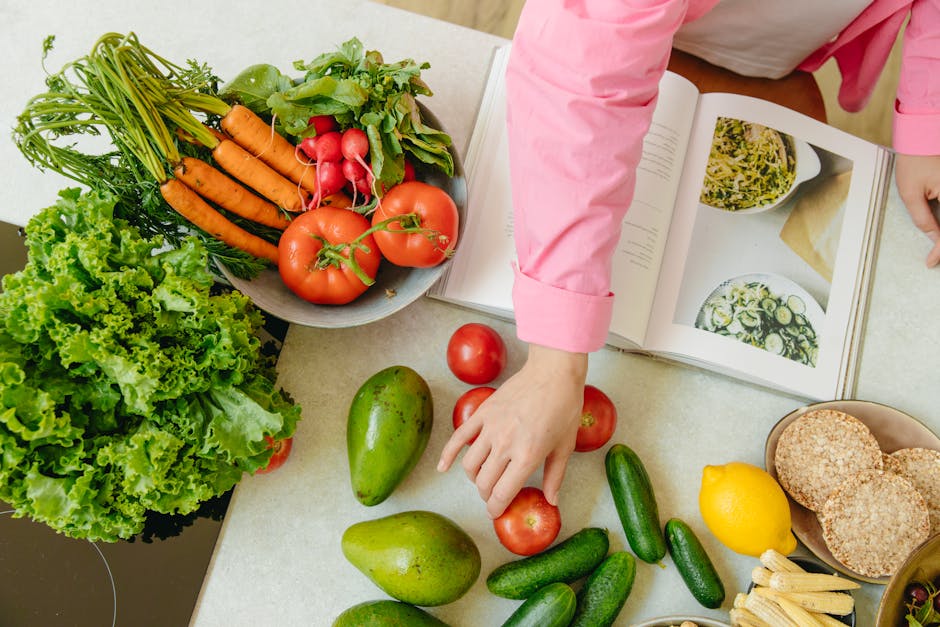The world of cookbooks is vast and varied, offering a treasure trove of culinary inspiration and practical guidance. Choosing a good recipe book, however, can feel overwhelming. It’s not just about finding a pretty cover; it’s about finding a resource that aligns with your culinary aspirations and practical needs. This exploration will delve into the crucial factors to consider when selecting your next culinary companion.
Understanding Your Needs: The Foundation of a Good Choice
Before diving into the aisles of bookstores or online marketplaces, take a moment to assess your culinary journey. What are your current skills and experience? Are you a seasoned chef seeking advanced techniques or a beginner eager to master the basics? Your cooking experience directly impacts the types of books that will be most beneficial. A book overflowing with complex molecular gastronomy techniques will be less helpful to someone just starting their culinary adventure than a book focused on foundational techniques.
The Recipe’s Role: Beyond the Instruction
Beyond the recipes themselves, consider the book’s overall structure. A meticulously organized cookbook, with clear ingredient lists, step-by-step instructions, and helpful visuals, will save you valuable time and frustration in the kitchen. Practical aspects such as ingredient quantities and cooking times are vital considerations, especially when you’re balancing multiple dishes or working with specific dietary needs.
Genre and Focus: Exploring Culinary Possibilities
Cuisine dictates the potential offerings. A cookbook dedicated to French pastries, for example, will likely differ significantly from one showcasing Asian stir-fries. Determine what culinary sphere attracts your interest. If you’re looking to expand your horizons, seek a book focused on a culture or region you haven’t explored before. Are you craving comfort food, innovative techniques, or simple weeknight meals? The genre should resonate with your tastes.
Author Credentials and Expertise: Trustworthy Guidance
The author’s background and experience play a crucial role in the book’s quality. Has the author written other successful cookbooks? Do they have a demonstrable track record of culinary achievement, possibly in a recognized institution or community? A renowned chef or culinary expert brings a wealth of knowledge and practical experience that translates into valuable guidance. Look for details about their career and qualifications.
Testing the Waters: Examining Recipe Presentation
Scrutinize the recipes themselves. Are the instructions clear, concise, and easy to follow? Are the ingredients readily available in your area? A thorough ingredient list coupled with precise instructions will be vital in ensuring success. Take note of the level of detail, which should be appropriate for your skill level. Consider the complexity of the recipes, particularly if you are a novice in the kitchen.
Visual Appeal and Accessibility: Enhance Your Experience
Aesthetically pleasing layouts contribute to a positive cooking experience. High-quality photographs or illustrations help visualize the steps and final product, aiding comprehension and inspiration. Consider the font size and layout. Is the information easily navigable, or is it a chaotic jumble of text? Accessibility is crucial; a cookbook should be a functional tool, not a decorative piece.
Beyond the Cookbook: Supplementing Your Knowledge
Look for features beyond the recipes. Introductions to a cuisine or technique can enhance your understanding of the underlying culinary principles. Tips and insights from the author can be valuable resources for improving your skills. The inclusion of nutritional information or dietary considerations can provide useful context for meal planning. Look for guides and useful advice accompanying the recipes.
Dietary Requirements and Personal Preferences: Tailoring Your Selection
If you have specific dietary requirements, such as vegetarian, vegan, gluten-free, or low-carb, ensure that the cookbook caters to those needs. Look for books explicitly dedicated to a particular dietary approach or those with extensive notes on accommodating different dietary needs within recipes. Ultimately, choose a book that reflects your preferences and lifestyle.
Final Thoughts: Making the Perfect Choice
Selecting the ideal cookbook is a personal journey. Consider your needs, preferences, and dietary restrictions. Explore different genres and authors. Don’t be afraid to experiment and discover a book that resonates with your culinary aspirations. With the right selection, your recipe book will serve as a valuable resource for years to come, transforming your kitchen into a sanctuary of culinary exploration. Investing time in selecting a quality cookbook will translate into more enjoyable and successful cooking experiences.






